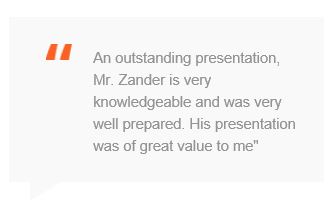
Recently I’ve read several articles discussing the falling life expectancy and several clients have asked if that changes my recommendations as it relates to delaying Social Security! Let’s take a look at Life Expectancy within the USA;
From what age is life expectancy measured?
Almost every calculation of life expectancy comes from the time of birth! Now if your 65 years old, Congratulation’s you’ve successfully navigated a lot of the stupid moments and decisions of your youth and avoided a lot of accidents and illnesses that took many others. To put this into perspective, when Social Security was instituted back in 1935 and the full retirement age was set at 65, life expectancy from birth was only 62.
What is the current mortality rate vs. projected future mortality rate?
According to the 2023 Social Security trustee report a 65 year old man has a 16.9 year life expectancy, while a woman has a 19.7 year expectancy. In 1930 the life expectancy for a 65 year old, was 13.2 for men and 17.4 for women. With medical advancements, better education of diet and health, it’s fair to say that life expectancy of 65 year olds, will be longer 20 years from now than they are today.
Are you average?
One needs to look other underlying aspects, besides year of birth! Education, income levels, net worth, type of work you did or are still doing, current health habits, mental attitude and future goals will most definitely affect your life expectancy. Not everyone will live longer, accidents and illnesses will inevitably befall some along the way. I think it is fair to say that since you’re reading this article you will probably have a longer life expectancy than the average American?
What is your family longevity?
One of the main markers I use in recommending when an individual should claim is family longevity history. Are your parents still alive, if not when and how did they die? By the way this goes for both sides of your families, since the surviving spouse inherits the greater of the two benefits upon the death of a spouse. Granted this is not a fool proof aspect since none of us knows our check out date, but it is a reliable marker when estimating one’s longevity and recommending when and how to claim Social Security benefits.
What do you plan to do in retirement?
My doctor retired last year at age 72, over the years we had several discussions as to retirement and his experiences with patients who retired. He told me those who continued working, had specific goals and had stayed active within social, civic and religious callings did extremely well, while those who retired to the couch and Fox News didn’t!
The longer you live – the longer you live!
When I started my firm Back 9 Financial, back in 2004 I often made the statement that the Front 9 (The Accumulation Phase) of life was much easier, since we had a specific goal and timeline to work with, if things didn’t work out or we had a bad investment experience, we could easily change the retirement date or the goal itself. The Back 9 (The Distribution Phase) is much more difficult since we don’t know how long we will be playing and we don’t have the luxury of making significant changes! The greatest risk in retirement is not dying too soon, it’s living too long!
Many financial experts recommend that a 65 year old, plan for a 30 year retirement. Even though a 30 year timeframe might seem to be a conservative recommendation, that advice could prove woefully insufficient and lacking in the real world!
In January my mother will turn 97,
her life expectancy will be 2.68 years according to SSA tables.
How many centenarians are there in the United States?
- This statistic shows the number of people aged 100 and over (centenarians) in the United States from 2016 to 2060. In 2016, there were 82,000 centenarians in the United States. This figure is expected to increase to 589,000 in the year 2060.
Have a Great Holiday and as always never hesitate to reach out to me if you think I can be of assistance to you and your clients,
Enjoy Fall,


